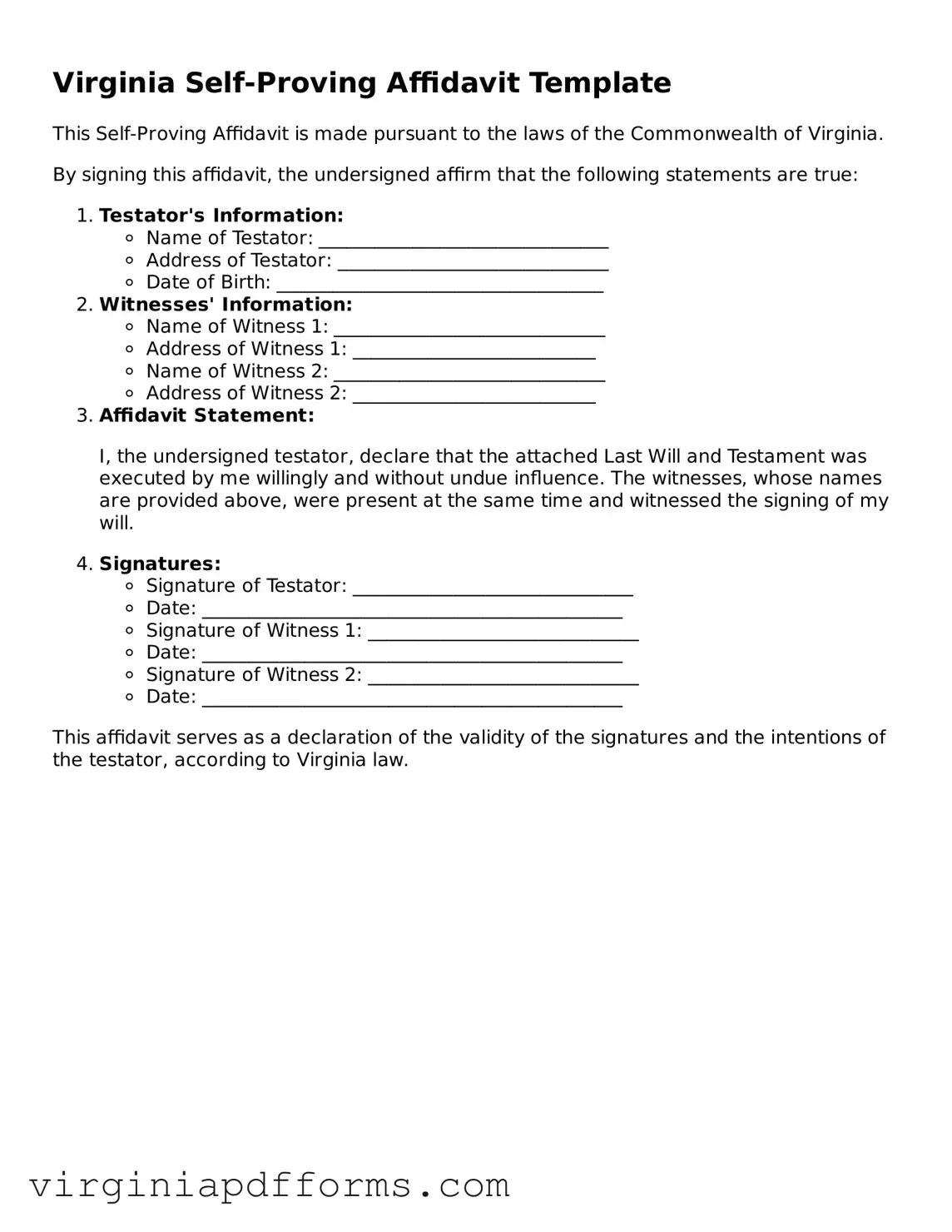Attorney-Approved Virginia Self-Proving Affidavit Document
The Virginia Self-Proving Affidavit is a legal document that allows a testator's will to be validated without the need for witnesses to appear in court. This form simplifies the probate process by confirming the authenticity of the will at the time of its signing. By using this affidavit, individuals can ensure their final wishes are honored with greater efficiency and clarity.
Access My Document Now

Attorney-Approved Virginia Self-Proving Affidavit Document
Access My Document Now

Access My Document Now
or
Free Self-Proving Affidavit File
Need this form wrapped up fast?
Finish Self-Proving Affidavit online — edit, save, download without effort.